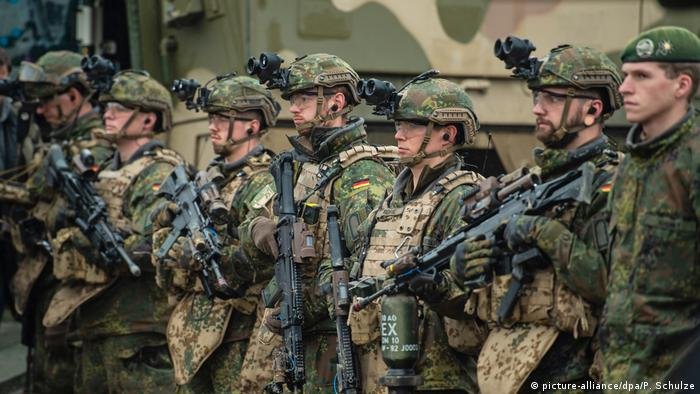Two days ago, U.S. intelligence agencies stated that the United States is generally facing an “increasingly fragile world order,” strained by great power competition, international challenges, and regional conflicts.
In that disclosure, the Western Balkans, specifically Kosovo, and the recent incident in Banjska, Zvečan, where police officer Afrim Bunjaku was killed, were mentioned as a fragile situation.
The disclosure states, “This region may face an increasing risk of localized ethnic violence throughout 2024.”
“Nationalist leaders are likely to exacerbate tensions for their political advantage, and external actors will incite and exploit ethnic differences to expand or defend their regional influence or to hinder further integration of the Balkans into the EU or Euro-Atlantic institutions,” the report says.
Besides Kosovo, the provocative actions of the Bosnian Serb leader, Milorad Dodik, are also mentioned.
Sulejman Mehazi: Serbian nationalist leaders Dodik, Vulin, and Vučić are stirring up war tensions in Kosovo and Bosnia-Herzegovina
Professor Sulejman Mehazi, in a response to “Bota Sot,” said these statements are true because the USA is facing a new world order.
According to him, with this situation, current conflicts have divided the world into quadrants.
“The statements of the American intelligence agencies are more than true as the USA faces an “increasingly fragile world order,” challenging the American administration to reduce its global influences.
The harsh Russian-Ukrainian, Palestinian-Israeli conflicts have divided the world into four parts: the Slavic-Russian Orthodox world on one side, the Western European world on the other, and the Islamic and rabbinic-Israeli religious world on another, not to mention these ideological, religious, nationalist, geopolitical, and political divisions are sowing the seeds for global warfare escalations.
These tense Russian, European, Israeli, and Chinese movements threaten the USA, which lately seems overshadowed by these great powers challenging the USA internationally, as if the USA has surrendered. The longer the military confrontations in Palestine and Ukraine last, the more the appetite for warfare will spread further, and the USA’s negligence towards Russian and Israeli extremism will cost dearly. If the USA does not call for peace, it will not only be unable to stop the madness of Russian and Israeli warfare but will weaken its American influences globally,” he stated.
Regarding the Balkans, he says this is no coincidence because Vučić, Vulin, and Dodik are stirring up war tensions in Kosovo and Bosnia.
Therefore, he calls for Albin Kurti and Vjosa Osmani to strongly align with the USA, as Serbia sees that by defeating Kosovo, the influence of the USA in the Western Balkans is also defeated.
“Not coincidentally, the American disclosures also mention the Western Balkans because Serbian nationalist leaders Dodik, Vulin, and Vučić are stirring up war tensions in Kosovo and Bosnia-Herzegovina to protect Serbian-Russian influences. Out of the six Western Balkan states, only Kosovo is pro-American, while most of these states are pro-Russian. By defeating Kosovo by Serbia, the influence of the USA in the Western Balkans is defeated; therefore, it is crucial for the Prime Minister of Kosovo, Albin Kurti, along with the President of Kosovo, Vjosa Osmani, to strongly align with the USA, and for the USA to express loyalty to Kosovo. If this does not happen, then Kosovo will be in permanent danger from Serbian-Russian influences,” he concludes for “Bota Sot”.
Gani Qarri emphasizes that Kosovo must be ready at any moment to defend its territory.
Analyst Gani Qarri highlights that this was previously warned by Janusz Bugajski, an expert on the Balkans, but now America is also facing an “increasingly fragile world order,” suggesting that this should be prevented even by force. “Nationalist leaders” like Millorad Dodik, Aleksandar Vučić, Aleksandar Vulin, etc., should be prevented from exacerbating tensions in the Western Balkans for their political advantage and to protect Russia’s interests in the region.
Only proactive engagement and timely action will not allow space for external actors, like Russia, through Serbia, Dodik, Vulin, etc., to incite and exploit ethnic differences, to protect their regional influence, by escalating conflicts and hindering the further integration of the Balkans into the EU and Euro-Atlantic institutions, he declares.
He states that Vučić displays his occupying ambitions, and his open goal is the creation of Greater Serbia, and that Kosovo must be ready at any moment to defend its territory with all means and possibilities, from the repetition of any unexpected Serbian terrorist attack.
In the end, Qarri insists that U.S. envoys should exert significant pressure on Serbia, not just Kosovo, as Kosovo does not threaten.







